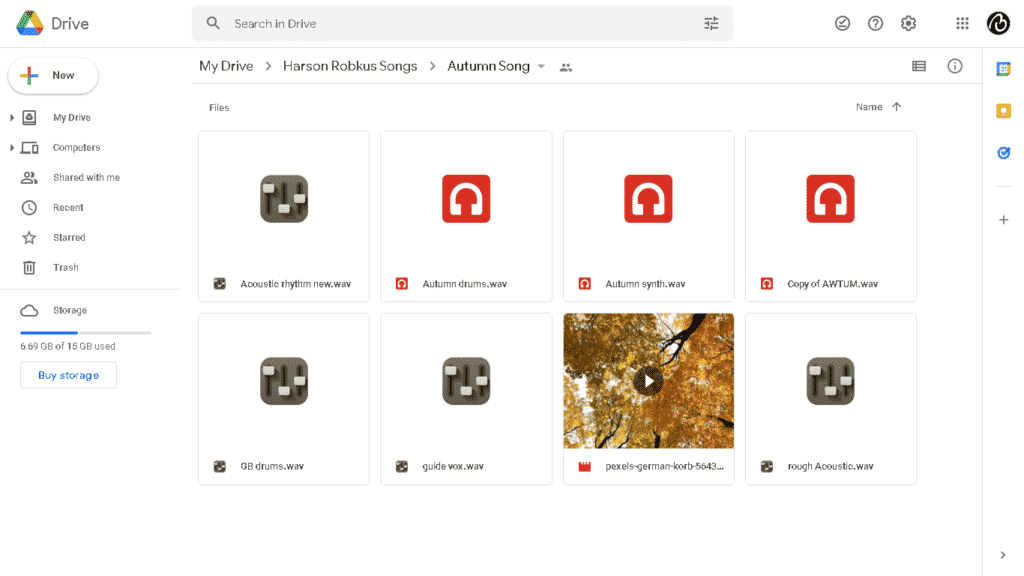This year, as the dark nights close in, Harson Robkus have, by necessity, moved out of the allotment shed and into the world of Remote Music Production. Here are my top 5 benefits of our journey.
What is Remote Music Production?
Remote music production is where artists collaborate remotely to produce a piece of music. In our case, working in isolation to record tracks, and exporting the .wav files to a shared Google Drive folder. From here, the tracks are imported into the other collaborator’s DAW project for them to work with.
Benefits of Remote Music Production #1: In your own time
Not everyone has the luxury of regular, uninterrupted, free time to make music. It’s one of the reasons I like solo projects so much. But with remote music production, you get the best of both worlds, you can collaborate AND not be tied to times and dates to get stuff done.
Another related benefit is cost. Producing in the comfort of your own home means no travel, rehearsal space, or studio costs.
Benefits of Remote Music Production #2: It’s DAW agnostic.
I produce in Apple Garageband these days, but remote music production does not mean other collaborators have to follow suit. Our current setup is Garageband and Ableton Live because those are our DAWs of choice. Simple.
Benefits of Remote Music Production #3: It’s the best version of you.
Building on the above point. I’m comfortable with Garageband now and feel I can give a better performance using that than having to switch to a common DAW for the project. But more than that, working in isolation, unhindered, undiluted, gives you a better focus too.
The flip-side of this is, you (or rather I) tend to be a little braver working alone too, rather than having that immediate feedback you get from working together in the same room, which can sometimes make you play it a little too safe.
Remote music production allows you to hear your collaborators’ raw ideas how they were originally intended. Always a good thing.
Benefits of Remote Music Production #4: True collabaration.
The result of all this is collaboration is its truest form. Your best ideas and performances in tandem with your collaborator’s best. The feedback loop’s still there, of course, the moment you click upload in Google Drive, but it’s more a case of ‘Here’s what I have, see what you think‘ rather than being shot down before you’ve started, which is never good.
Benefits of Remote Music Production #5: Mixing and mastering is more productive and fun.
When you get to the point of having the tracks down. It’s mixing time, time to get back together again, and decisions have to be made as to what DAW to use to get to a master mix. Ableton, on the big screen, has worked better for us as, well, Dave has it and we mix at his house!
It’s a rewarding feeling getting into the mixing session fresh from the recording you’ve done at home, and being able to focus on and have discussions purely about levels, mixing, and polishing. More than anything it’s just a lot of fun going over your progress, putting together the tracks, and bouncing ideas off each other for more.
The last stage, mastering, has literally been a case of exporting the master and deciding which DAW has the better mastering plugins. I’ve never had that flexibility working alone.
Conclusion
Remote Music Production is something I’ve always wanted to get into, but also something I never thought would work quite so well.
Having shared folders containing .wav files that can be imported into any DAW has streamlined the whole process and allowed us both to carry on using our preferred tech and workflow painlessly. Also, it’s just a much better platform for sharing ideas and getting immediate feedback.
To end, the proof is in the pudding they say, and this remote way of working has, in my opinion, helped Harson Robkus produce our best work yet
Thanks for reading, and watch this space!
